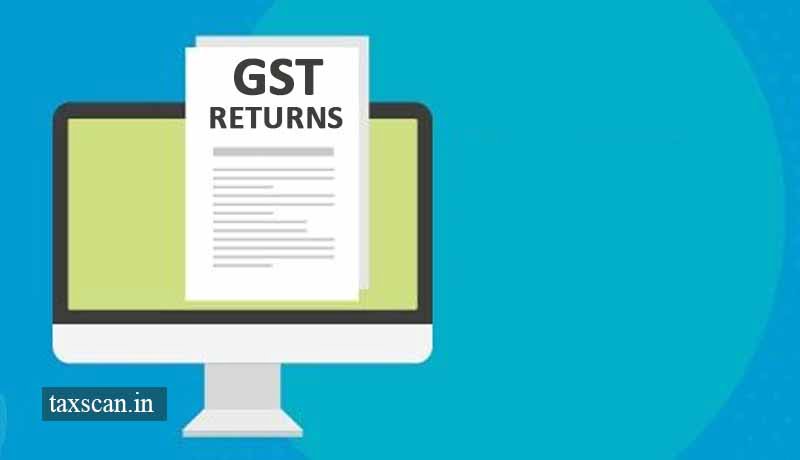The War over Interest

The war has begun. The first missile was fired by the CBIC through the CBEC Members letter F.No. CBEC-20/16/07/2020 Dt. 10.02.2020, wherein it was exhorted that in case of delayed filing of return (GSTR-3B), interest would be payable on the gross tax liability. This letter goes on to record that a whooping interest due to nearly 46,000 Crore rupees is pending to be recovered from defaulting assesses. This missile attack was followed by continued shelling of canons, viz., letters from all field formations to the assesses, to pay up the interest dues.
But, the above communications have not at all referred to the proposed amendment to section 50 of the CGST Act, whereby interest was to be demanded only on the net liability, i.e. after adjusting the ITC available.
The reasons for such amendment, as noted in the detailed agenda notes for the 31st GST Council meeting, is worth referring.
Agenda Item 7(xx): Proposal for amendment of Section 50 of CGST Act, 2017 to allow payment of interest on net cash liability.
The liability to pay interest in case of non-payment of tax arises out of the provisions contained in Section 50 (1) of the Central Goods and Services Tax Act, 2017 (hereinafter referred to as the “CGST Act”) which reads as follows:
“Every person who is liable to pay tax in accordance with the provisions of this Act or the rules made thereunder, but fails to pay the tax or any part thereof to the Government within the period prescribed, shall for the period for which the tax or any part thereof remains unpaid, pay, on his own, interest at such rate, not exceeding eighteen per cent., as may be notified by the Government on the recommendations of the Council.”
It may be seen from the above provision that interest is applicable to the amount of tax that has not been paid by the registered person.
2 Various other sections related to payment of tax are as follows:
- Section 49(2) of the CGST Act provides that the input tax credit as self-assessed in the return (not necessarily be a valid return) of a registered person shall be credited to his electronic credit ledger.
- section 49(3) and 49(4) of the CGST Act provides that the amount available in the electronic cash ledger may be used for payment towards tax, interest, penalty, fees or any other amount whereas the amount available in the electronic credit ledger may be used for payment towards output tax. The term “tax dues” has been defined, as per Explanation (b) to section 49 of the CGST Act so as to mean the tax payable under the CGST Act and does not include interest, fee and penalty.
- Section 39(7) of the CGST Act provides that the tax payable as per the return is required to be paid not later than the last date on which the return is required to be furnished. iv. Section 2(117) of the CGST Act provides that a valid return means a return furnished under section 39(1) of the CGST Act on which self-assessed tax has been paid in full.
- A perusal of above provisions indicates that the law permits furnishing of a return without payment of full tax as self-assessed as per the said return but the said return would be regarded as an invalid return. The said return, however, would not be used for the purposes of matching of ITC and settlement of funds. Thus, although the law permits part payment of tax no such facility has been yet made available on the common portal. This being the case, a registered person cannot even avail his eligible ITC as he cannot furnish his return unless he is in a position to deposit his entire tax liability as self-assessed by him. This inflexibility of the system increases the interest burden.
The same is illustrated as below: Suppose a registered person has self-assessed his tax liability as Rs. 100/- for a particular tax period. He has an amount of Rs. 10/- as balance in his electronic credit ledger and he is eligible to avail Rs. 80/- as an input tax credit (which would be credited to his electronic credit ledger only on furnishing of return). He is, therefore, required to pay only Rs. 10/- from his electronic cash ledger. The IT system will not allow the said registered person to furnish his return (and therefore the ITC of Rs. 80/- will not be credited in his electronic credit ledger) until he is in a position to discharge his complete self-assessed liability of Rs. 100/-. He would be liable to pay interest on the entire self-assessed tax liability of Rs. 100/- as he is not able to pay Rs. 10/- or part thereof from his electronic cash ledger. It may be seen from the above that if the facility for part payment, as permitted under law, was available, the registered person would have been required to pay interest only on Rs. 10/- but presently he is liable for interest on the entire tax liability of Rs. 100/-.
- It is also pertinent to mention that the liability of any registered person is related to the value addition made by him since GST is leviable only on value addition. Accordingly, the input tax credit is allowed to the registered person in respect of the tax paid by him on his inward supplies. And, while making the outward supplies, the input tax credit so allowed is permitted to be utilised for discharging his output tax liability. The remaining part which is generally equivalent to the tax on value addition is discharged through electronic cash ledger. Hence, by this mechanism, the registered person effectively pays tax only on the value addition made by him. If this concept is applied for interest payable, then, it appears that the interest should also be charged on the tax payable on the value addition only, i.e. the amount of tax which is required to be paid through electronic cash ledger. 5. Presently the interest is not calculated by the IT system. The registered person himself calculates the said interest and deposits the same. It appears, therefore, that any change would not pose any IT-related challenge.
- The issue was deliberated by the Law Committee in its meeting held on 15.12.2018. The Committee observed that the proposal to charge interest only on the net liability of the taxpayer, after taking into account the admissible credit, may be accepted in principle. Accordingly, the interest would be charged on the delayed payment of the amount payable through the electronic cash ledger. However, where invoices/debit notes have been uploaded in statements pertaining to the period subsequent to the period in which they should have been uploaded, the interest shall be calculated on the amount of tax calculated on the taxable value from the date on which the tax on such invoices was due. This would require an amendment to the Law.
- Accordingly, in-principle approval of the GST Council is sought for carrying out the amendment in the CGST/SGST Act as per the proposal contained in para 6 above. Law Committee may be directed to frame suitable amendments in the law. Similar amendments would be required in the respective SGST Acts also.
The furore created by the above missile and canons was followed by CBIC’s tweets which reiterated that the above amendment, which is yet to be given effect to, would only be prospective and for the past period, interest is payable on the gross tax liability.
And now comes the saviour from the Hon’ble Madras High Court, which has held that the above amendment to Section 50 of the Act, which has become part of the statute (though yet to be notified) is clarificatory in nature and hence would apply retrospectively.
We have to wait and see whether it is a truce to end the war or considered as an attack on its authority by the Government.
 G. Natarajan, Advocate, Swamy Associates.
G. Natarajan, Advocate, Swamy Associates. 

